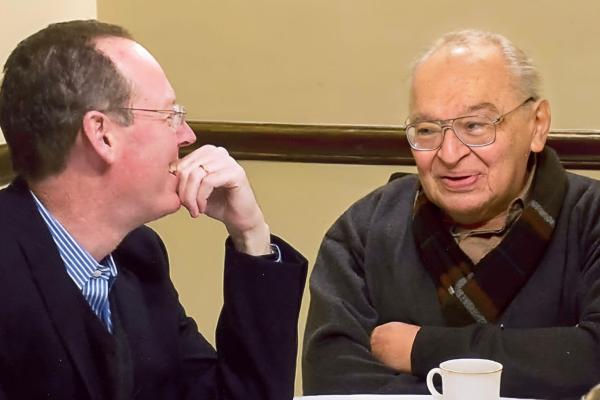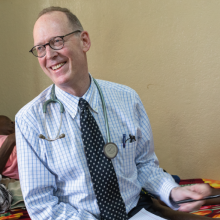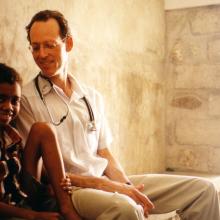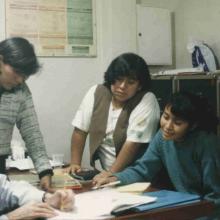Paul Farmer, co-founder of Partners In Health (PIH) and a pioneer in global health, found a source of inspiration in Gustavo Gutierrez, the Peruvian Dominican priest known as the father of liberation theology who died this week at 96. This connection not only shaped Farmer’s vision of health justice, but became a pillar of PIH.
As a young medical student, Farmer was searching for answers to his social justice concerns. It was then that he discovered the work of Salvadoran Archbishop Oscar Romero and, through him, came to the liberation theology of Gustavo Gutierrez. A powerful concept that holds that Christian faith should focus on “the preferential option for the poor”, that is, that the welfare of the most vulnerable should be an ethical and social priority.
The PIH co-founder found in Gutierrez not only a mentor, but a friend. In his own words, the “frayed edge” of his faith began to come together under the guidance of this theologian, whose example of humility and unwavering commitment to the poor showed him a clear purpose: to fight for health justice as a direct manifestation of his belief in equity.
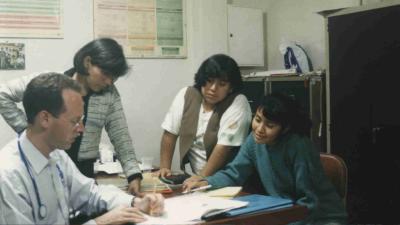
The influence of Gustavo Gutierrez on Partners in Health
The preferential option for the poor, one of Gustavo Gutierrez’s fundamental teachings, transformed not only Paul Farmer’s approach to medicine, but also PIH’s mission. In his book co-written with the Peruvian theologian, In the Company of the Poor, he reflects on how this philosophy should be central to the health sector.
“Any serious examination of epidemic diseases has always shown that microbes also make a preferential option for the poor…. Imagine how much needless suffering we could avoid if our health and educational systems, nongovernmental organizations and foundations really did make a preferential option for the poor,” he wrote.
PIH adopted this vision to bring health services to marginalized communities around the world. Under the influence of liberation theology, the organization implemented programs in places such as Haiti, Peru and Rwanda, where Paul Farmer discovered firsthand the impact of conditions of extreme poverty and inequality on people’s health.
For Farmer, working in vulnerable communities was a form of solidarity and genuine accompaniment. Instead of questioning “why don’t patients comply with treatments?”, he shifted the perspective to “how can we accompany our patients on the path to healing and relief from suffering?”
This vision, inspired by Gutierrez’s teachings, became an approach of continuous accompaniment, an act of solidarity that opposed the unequal structures of the global health system and unilateral welfarism.
“How can we accompany our patients on the path to healing and relief from suffering?” was one of the recurring questions Paul Farmer asked himself as a result of his readings on liberation theology.
Paul Farmer and Gustavo Gutierrez, a legacy of social justice
Over the years, Paul Farmer and Gustavo Gutierrez developed a deep friendship that nurtured their commitment to the underprivileged. Farmer recounted that, thanks to Gutierrez’s guidance and the example of patients in Haiti, he rediscovered the faith he had thought lost. “Throughout my twenties, the thin, frayed thread of my own faith, which I thought severed, began to become visible again,” he once wrote.
When Paul Farmer passed away in 2022, his legacy was well established. Partners in Health, in its global mission to bring health justice to the most vulnerable populations, continues to be a manifestation of liberation theology’s influence on medicine.
Gutiérrez, who died last Oct. 22 at age 96, also left an indelible mark. His teachings on the preferential option for the poor were not only the foundation of PIH, but today inspire hundreds of health professionals to see their work as an act of justice and solidarity.
If you would like to receive more information on our activities, you can subscribe here. Join our health movement!
